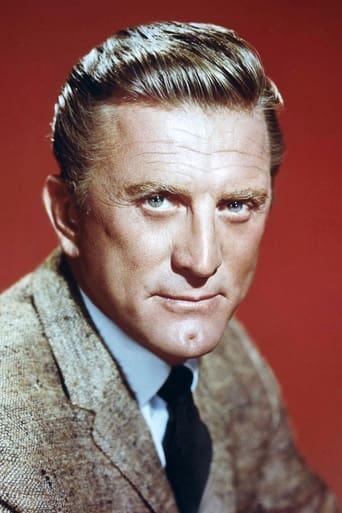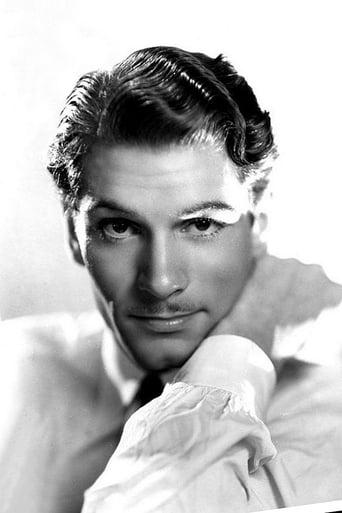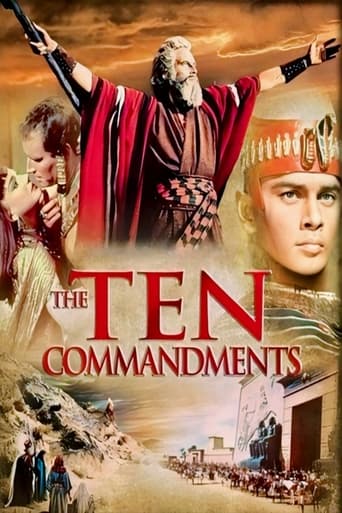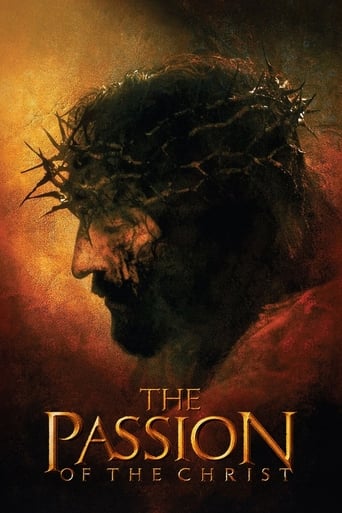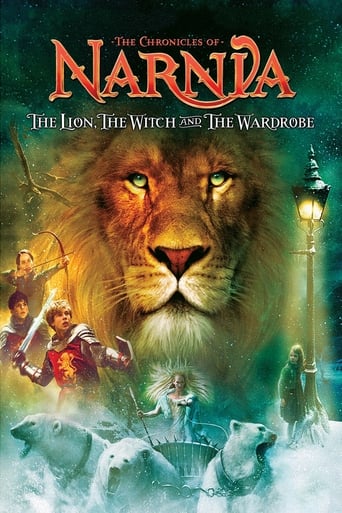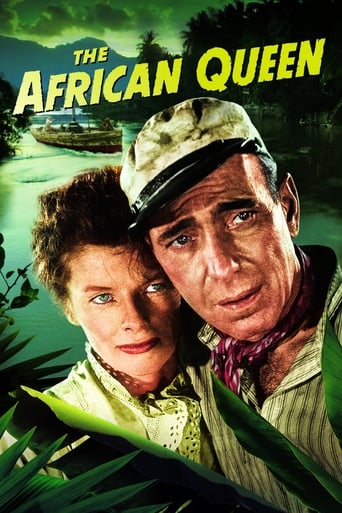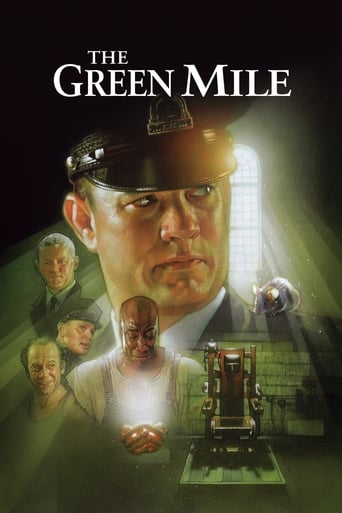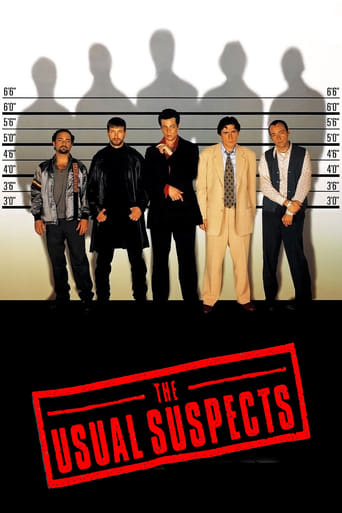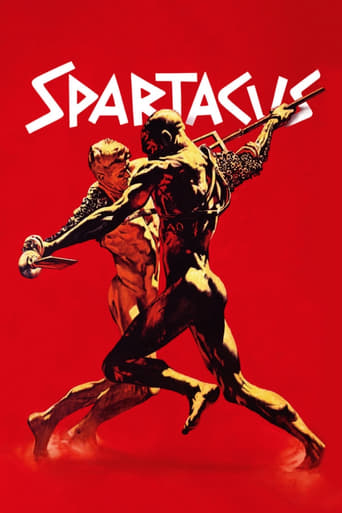
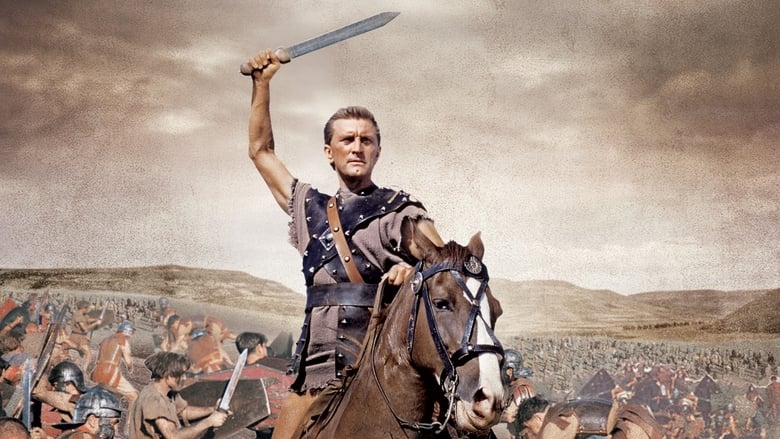
Spartacus (1960)
The rebellious Thracian Spartacus, born and raised a slave, is sold to Gladiator trainer Batiatus. After weeks of being trained to kill for the arena, Spartacus turns on his owners and leads the other slaves in rebellion. As the rebels move from town to town, their numbers swell as escaped slaves join their ranks. Under the leadership of Spartacus, they make their way to southern Italy, where they will cross the sea and return to their homes.
Watch Trailer
Cast
Similar titles

Reviews
You won't be disappointed!
Redundant and unnecessary.
It’s not bad or unwatchable but despite the amplitude of the spectacle, the end result is underwhelming.
A terrific literary drama and character piece that shows how the process of creating art can be seen differently by those doing it and those looking at it from the outside.
I saw this movie on TV more than 45 years ago, when I was eight or nine. I really enjoyed the training scenes and the battle scenes, and with epic scale and great characters I felt like I understood why this movie is a classic. The other night I saw this movie again, and I have to say after 45 years it was a lot less powerful than I remembered. Kirk Douglas is a fine actor, but there's something strangely passive and uninteresting about the hero he plays. Spartacus is just, well, he's a nice guy. And everything comes together too fast, with hardly any real drama or face to face confrontation. We're told Spartacus is angry about slavery, but as far as we can tell he's always been a slave. He meets cute Jean Simmons and decides in about five minutes he's ready to die to protect her. A black gladiator sacrifices himself for Spartacus after chatting with *him* for five minutes. When Spartacus makes his move and punches out the overseer, the whole mob of gladiators instantly backs him up on the dime. Because they've known him for a week already! And when the totally unplanned, spontaneous, flash mob takes over the school (really the high point of the film) everyone unanimously agrees that Spartacus should be the top man and sole decision maker. Because really, they've known him almost a week now!Now why do I call this the poor man's BEN HUR? It's not that I think Kirk Douglas is a better actor than Charlton Heston. But with Judah Ben Hur you get to know the man, not just the historical injustice. Judah is a son, a brother, a man with complicated emotions about Rome and about his homeland. BEN HUR is really a character study, about a man who goes through all sorts of emotional transformations, from a man deeply committed to peace to an angry man bent on revenge to a man seeking forgiveness and redemption. Spartacus, well, he's just a nice guy. He likes freedom, he likes helping mobs of oppressed, hungry slaves, and he likes listening to Tony Curtis sing about his mommy and daddy. Can you really build an epic around this guy?Really, the STARZ series has it all over this old time epic!
Just as Ben-Hur is the most famous biblical movie ever, Spartacus is the most famous gladiator movie ever. (Sorry, Russell Crowe.) In 1960, the year after Ben-Hur's spectacular success, producing a three-hour movie about Roman gladiators was risky. Everyone in the audience would be comparing it to Charlton Heston's slavery scenes, so it'd better be good! Well, it was good, and it's remained a classic through the decades.Spartacus focuses on the treatment and life of slaves, and the dissension within the Roman Empire, rather than copying any Biblical theme from the countless religious movies to come out of the 1950s. There are so many famous scenes and lines that have come out of this movie, it's almost superfluous to give a plot summary or even mention the cast. Briefly, Kirk Douglas plays the title character, an unruly slave who is sent to train as a gladiator. He falls in love with Jean Simmons, and while his fellow slaves turn to him as a leader, he bonds closely with one in particular, Tony Curtis. Laurence Olivier, Charles Laughton, Peter Ustinov, and John Gavin give very memorable performances as Roman politicians, a slave trader, and Julius Caesar, respectively.Spartacus is one of those classics, like Gone with the Wind, that everyone sees at least once in their lifetime. If you have no idea what the phrase "I'm Spartacus!" means, your film education missed a key course. Go rent the movie during your next guys' weekend, and get ready to appreciate the movie that fathered all the modern gladiator movies we know and love.
It is really interesting to see why this film, Spartacus was made in the first place. Obviously, historical epics were massively successful during this time period. But this particular film was made as an answer to 1959's Ben-Hur. In fact, it was Kirk Douglas's answer to that movie. Douglas was originally set to star in that movie, but Charlton Heston was cast over Douglas at the last minute, giving Douglas a feeling of bitter resentment. Both films have a very common theme: one man rising against the mighty Roman Empire to fight for their beliefs. I think Ben-Hur is the better film, but there is much to admire about this film.The movie, based off the popular novel by Howard Fast, was written by Dalton Trumbo. Trumbo is a well-known screenwriter, not only for his writing talent but because he was blacklisted because of his associated ties with communism. Kirk Douglas and director Stanley Kubrick stood strong behind their screenwriter and they publicly announced Trumbo wrote their movie, instead of Trumbo hiding behind a pseudonym. I found that to be a very courageous move on the part of Douglas and Kubrick, because that could have easily hurt the movie's chance at the box office. Luckily, the film was a box office smash and was very popular with the critics and the audience alike.This film has a Roman slave named Spartacus (Kirk Douglas) as the film's central character. Spartacus is held at a gladiatorial school ran by the amusing Lentulus Batiatus (Peter Ustinov). One day, he starts a revolt because he became angered at the notion of fighting to the death for the entertainment of spoiled women. This revolt soon spread all across Italy, where thousands of slaves joined the cause. Their plan was for Silesian pirates to transport them away from Italy to new lands. Meanwhile in Rome, Senator Gracchus (Charles Laughton) schemes to have the slaves taken down by a Roman garrison. After they failed, his mentor Marcus Licinius Crassus (Laurence Olivier) decides to lead his own army against Spartacus's slaves. Now Spartacus must face the might and power of the Roman army.Now compared to other epics of the time, I didn't like this film as much. It's certainly not a bad film, not even close to being so. The problem is the movie is a tad overlong and the story drags at certain moments. Some of the dialogue was cheesy too. By today's standards, the dialogue does not hold up very well and some of the words are laughingly bad. These complaints dragged the movie down, but only to a very small degree.There are many things I did admire about the film. There are plenty of majestic battle sequences and I liked them very much. I loved watching how the revolt started and I was cheering for Spartacus the entire time. I liked the political backdrop of the movie. Obviously, Spartacus uprising has a major political undertone which is revolution, a very appropriate theme. We also get to go behind the scenes and see how Roman politics influenced the war. It's a common fact that Roman senators always schemed against each other. The film also did something different, when compared to other epics. These other epics usually provide the normal happy ending. Well, that is not much the case with this film. If you follow history, you'll know the fate of Spartacus. But I'm not going to spoil anything for those who don't know. But the ending was very powerful and memorable. Speaking of powerful, my favorite scene was when a Roman general asked Spartacus's army where Spartacus was. Each soldier stood up and said, "I'm Spartacus." A very powerful scene showing the loyalty the slaves had for Spartacus and his cause.This film was the first big film of Stanley Kubrick's career. He was 30 when he directed the film, but he already had 4 feature films under his belt before this film. He masterfully directed the film, but it is publicly known that he disowned the film. It's his most straightforward film, and it was nominated for 6 Oscars (and won 4 of them). But Kubrick didn't like the film he made. He is one of my favorite directors, and you'll see more reviews of his films down the line.The film features fine performances from everyone involved. One of Kubrick's strengths is getting the very best out of his actors. Kirk Douglas portrayed Spartacus as a strong man driven by perseverance. Peter Ustinov, who won Best Supporting Actor at the Oscars for his role as Batiatus, does a wonderful job. He is consistently funny and he has a great screen presence whenever on screen. Laurence Olivier delivers a deep performance as Crassus, who is identified as bisexual in the movie. Jean Simmons does a good job as Varinia, the wife of Spartacus. She delivered some emotional performances. Just watch the ending of the movie to see why I say so. Also, keep an eye on a meaty supporting turn by Tony Curtis as Antoninus, the man who loves Spartacus like a brother. Finally, Charles Laughton is great as the soft-hearted scheming Roman Senator, Gracchus.Overall, I liked Spartacus, but I didn't really love it much. It runs into some boring stretches and parts of the movie such as the dialogue and costumes don't hold up well. But I liked how the film strived to be more historically accurate than previous epics. This is a nice film to learn something about Ancient Rome. The film does feature wonderful, bold performances, great direction, good production design, and spectacular battles. Not the greatest epics ever made, but good enough.My Grade: B
**This review contains spoilers but I will warn you when they come up."He(Spartacus) was a man who began all alone, like an animal. Yet on the day he died thousands and thousands would have died in his place... He wasn't a god, he was a simple man, a slave"-Jean Simmons or Varia.Spartacus was Kubrick's 5 Movie and it holds up very much to Stanley Kubrick's legacy.At first glance the movie seems like just another slave movie, but as thee movie continues there's exponentiation growth in suspense, development and the evolution of Spartacus. Taking unexpected twists and turns. But before we go on and glorify Stanley's 5th movie I must point out the few flaws.The movie gets boring from time to time with some bad pieces of dialog and some very slow scenes, The 3 hour length of the movie is unwarranted, not once did i find myself checking the time. It would really help the movie to be say, a half an hour short. Now that that's over with I will glorify Stanley before the mob kills me. I cant stretch how much the plot amazed me it was simply a work of art that you don't come across often. The plot of the movie continues to make unexpected changes and the suspense only grows. The effects are in par or even better then allot of what you see today, the whole universe of the film was constructed ingeniously and crafted carefully. The music in the film reflects the scene, as you'd expect from Kubrick. Even though I said there's some bad pieces of dialog there are also some amazing and extremely quotable one to.**Now here comes the SPOILERS and the analysis skip this if you didn't watch the movie.As we know the character played by Kirk Douglas (Spartacus)starts out as a 'simple man',-notice the simple- a slave with no hope no will and no desire and while the character evolves and achieves unimaginable goals he always remains a slave throughout the film, I will explain. As the movie points out there are more Romans then slaves hence making slaves the normal ones and thus simple hence 'simple man'. Even when Spartacus has an army he is still in the query, the starting point of the film. Even in his death he died happy with a smile showing that hes not afraid of dying, the movie previously pointed out that that's a death of a slave "When a slave dies he is free,but when a free man dies he loses what he had" its a rough quote but it holds the same point. What I'm suggesting is that on the broad picture Spartacus seemed, changed but if you look at the details you find, that is simply not the case. Now, the obvious question remains "who is he a slave to". Hes a slave to himself, the fact is hes still in the query and still is "fighting to the death", but there's a difference hes not doing it for Rome and I think that's Kubrick's message. Its better to fight or to be a 'slave' for freedom then to be a slave for 'Rome'. Slave meaning citizen and Rome meaning any corrupt government that doesn't take there citizens seriously, as depicted in doctor strange love. **NO more SPOILERS** No wounder the movie won 4 Oscars. Spartacus is a timeless work of art that I hope wont be forgotten, because "people die, ideas don't"- V for vendetta. The movie is a great time though you need time to fully enjoy it I think its worth the time.Anyway this is my first movie critique whatever this is. I hope you enjoyed the read if you have any objections please reply and I hope you gained some more insight or respect for the movie.
